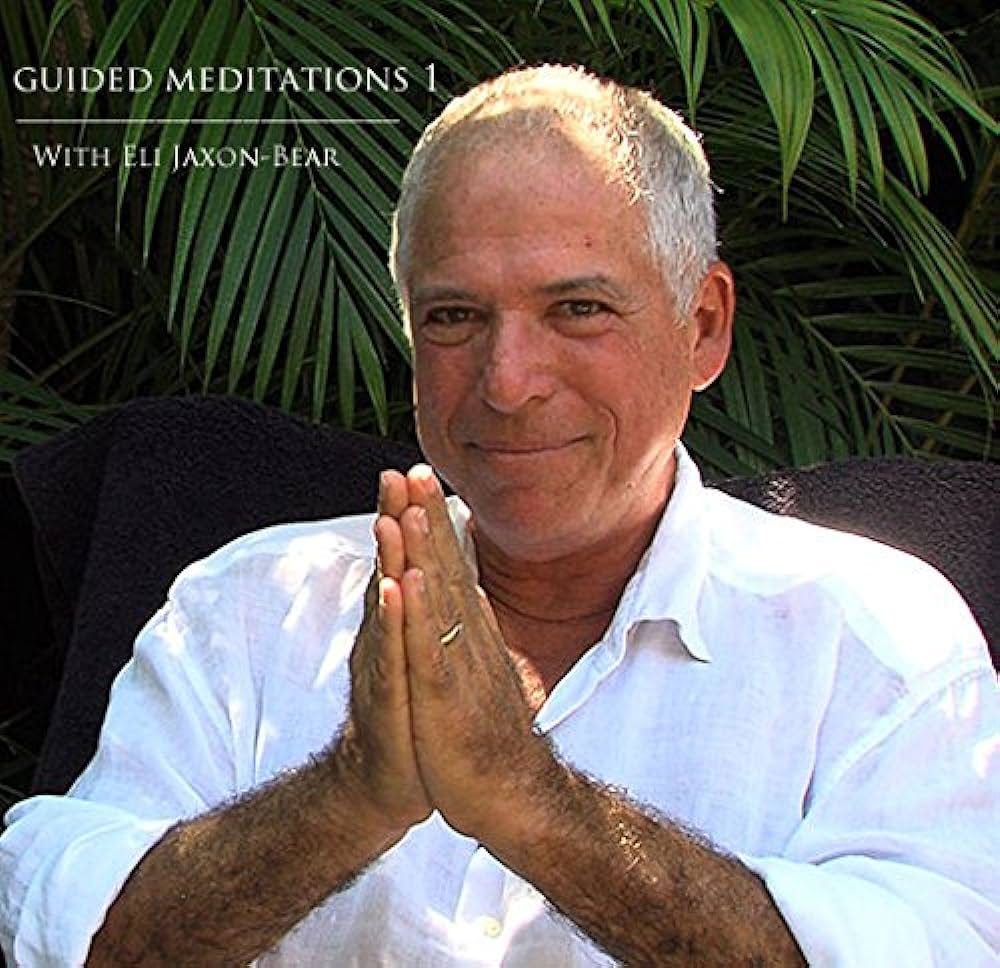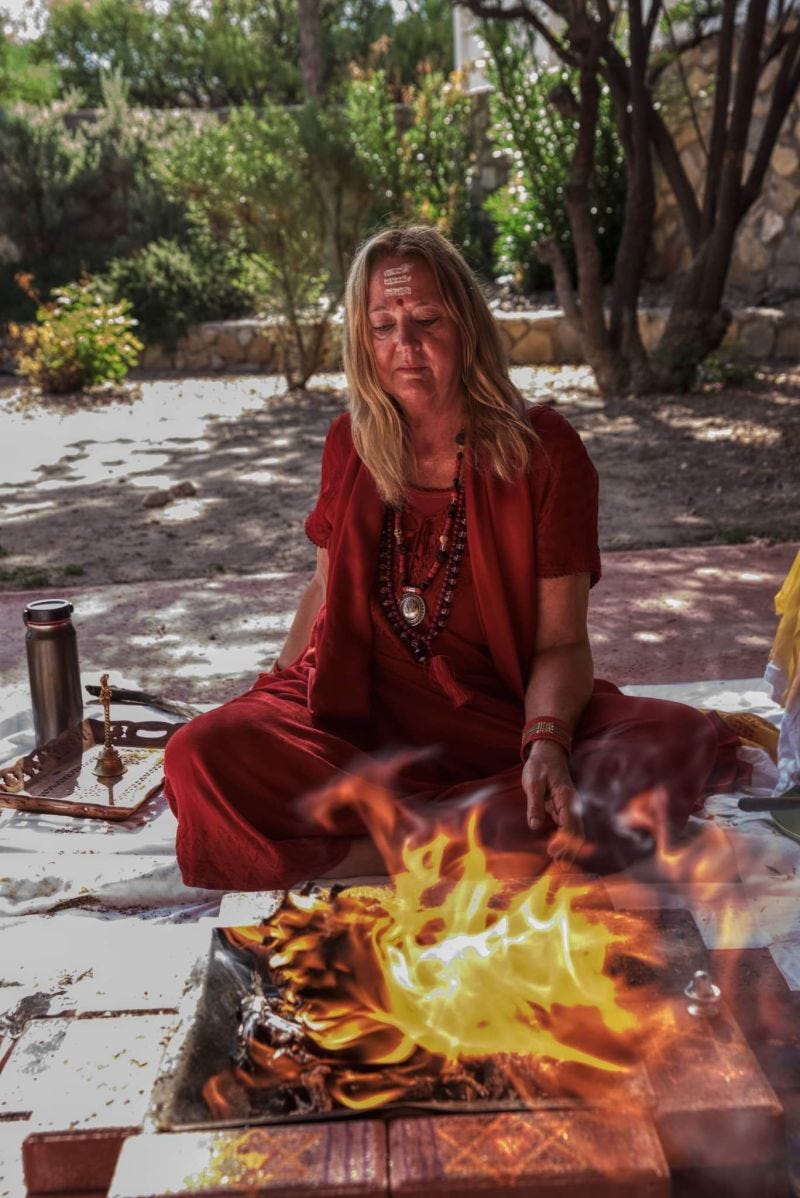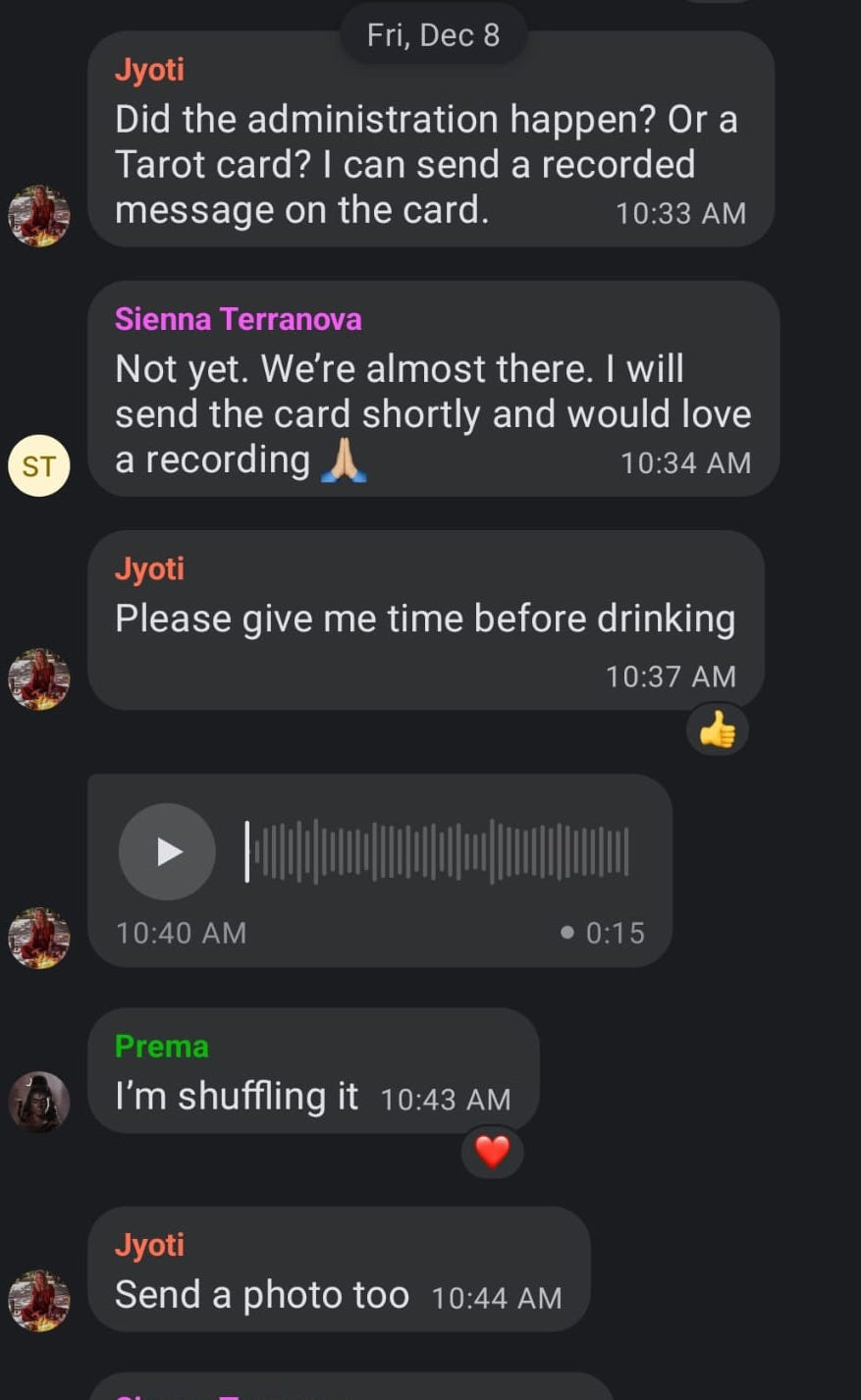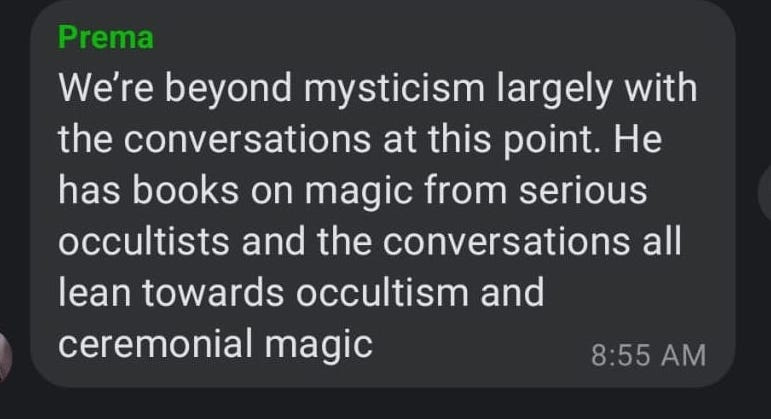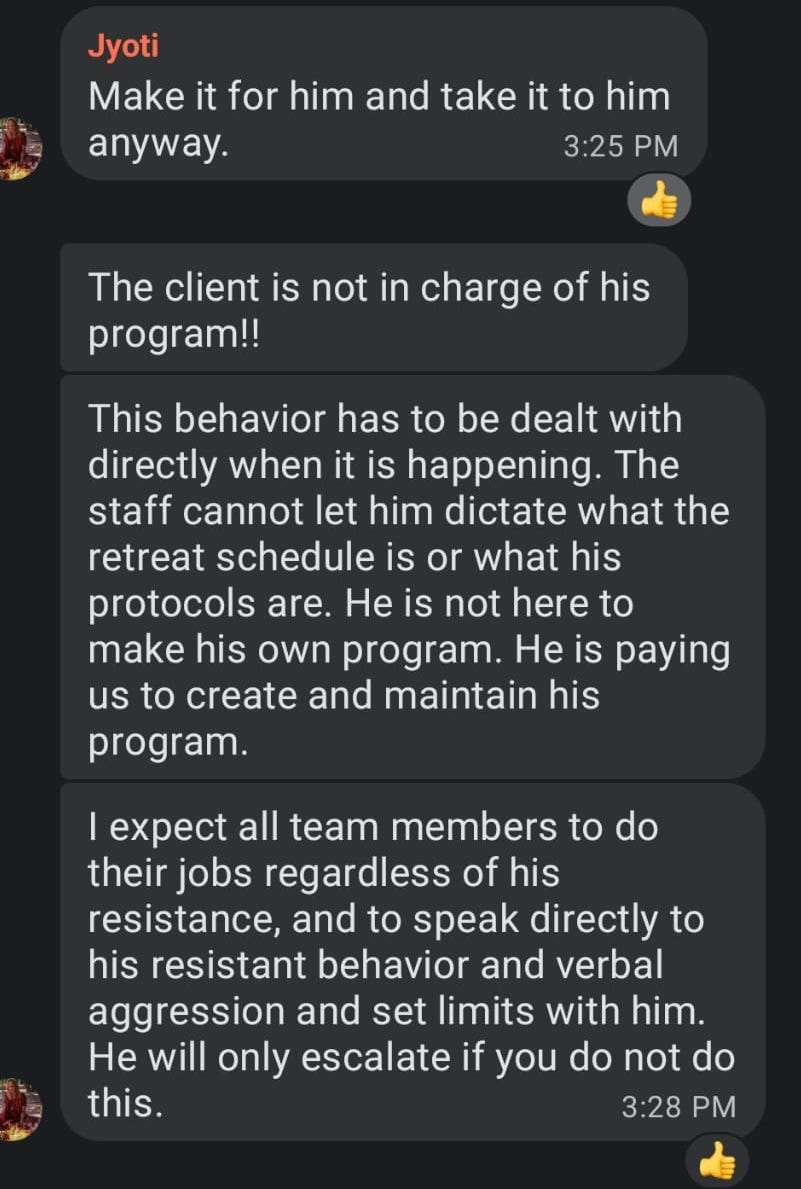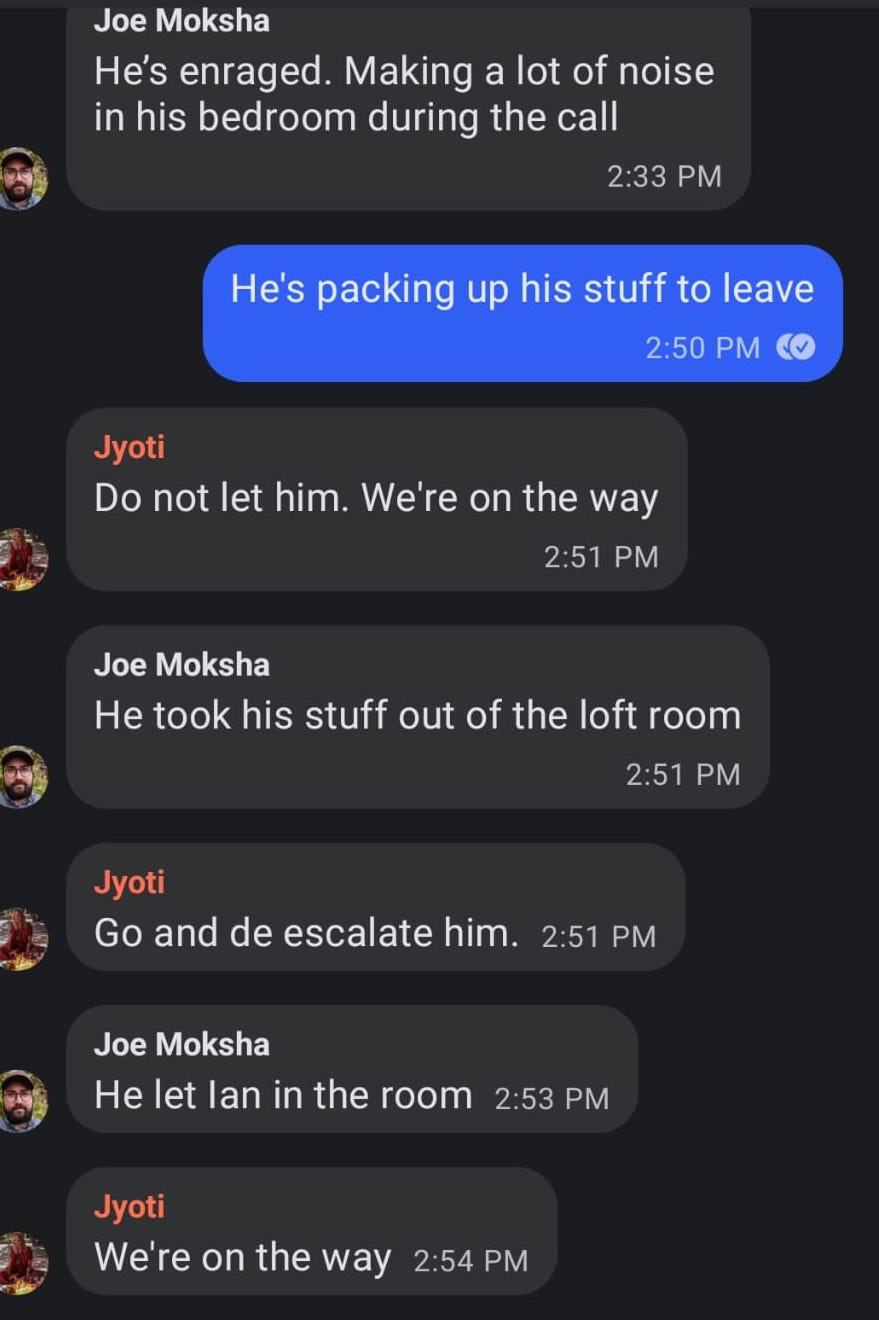Oregon's wild psilocybin market
A look at complaints to the Oregon Health Authority show some of the challenges facing US states
NB - news just breaking that Dr Ben Sessa, one of the most prominent psychedelic researchers and promoters, has been found to be ‘impaired’ to practice medicine by a UK medical tribunal, after he had a relationship with a former client who subsequently took their own life. We’ll write more on Tuesday.
This week we’re going to take a deep-dive into Oregon’s state-legal psilocybin market, the first legal psychedelic market in the US, and a model for several other US states as they prepare psychedelic legislation.
We’re going to focus on issues of safety and how the legality of services is blurred in Oregon, potentially putting consumers at risk. Of course, safety is only one part of the drug policy puzzle - it has to be balanced with questions of accessibility, equity, justice, freedom and so on, and no doubt readers will have different views and sympathies on this issue.
Oregon introduced a dual model when it comes to psychedelic drugs. In February 2021, Oregon decriminalized the possession of small amounts of any drugs, including psychedelic drugs. And then in January 2023, through ballot measure 109, it state-legalized the consumption of magic mushrooms in service centres guided by licensed facilitators, under Oregon law 475A.
This two-pronged model of state-legal regulated access within the wider context of drug decriminalization was followed by Colorado and could be followed by other states like Vermont and Massachusetts - though these other states only want to decriminalize certain psychedelic plants, not all drugs as Oregon did. This is crucial as the decriminalization of all drugs (including psychedelics) looks set to be rolled back in Oregon.
No model is perfect, and there are certain problems with this decrim + regulated access model.
Psychedelic users who care about freedom and accessibility complain (rightly) that the regulated access model is very expensive - a single legal guided psilocybin session in Oregon costs upwards of $1000 and can be as much as $3500. Costs are so high largely because psilocybin is still illegal at the federal level, and that creates costs for providers. Nonetheless, the facilitators I’ve spoken to say there is demand for these legal sessions, particularly from people out-of-state, and particularly from people with long-term mental health issues like PSTD and treatment-resistant depression.
Another obvious and widely-cited problem is that the expensive regulated access model is not actually that safe. It was campaigned for as the solution to the US mental health crisis, but the facilitators are not required to have any medical training, only 120 hours of often online pre-recorded instruction and 40 hours of ‘practicum’. This is a quarter of the time it takes to get certified as a masseur in Oregon. In fact, if licensed therapists also get a psilocybin facilitator license in Oregon, they are not allowed to practice therapy in the legal psilocybin sessions, and it’s not clear if their therapist license could be at risk. For that reason, trained therapists are largely steering clear of the legal psilocybin market for now.
As forensic psychologist Brian Holoyda argued in our recent Psychedelic Safety Seminar, Oregon facilitators arguably do not have sufficient training to properly inform clients about psychedelic risks, or to support them during and after challenging psychedelic experiences, and this puts the clients at risk of harm, and facilitators at risk of law suits.
A third problem (for people like me concerned about safety) is that psychedelic reform campaigns increase public demand for psychedelics, especially among the emotionally desperate, then fail to create affordable routes to legal psychedelic usage, so they actually drive people to underground, unregulated, illegal providers or to self-medication (which is risky for first-timers). Illegal providers can offer whatever services they want and advertise them however they want, safe in the knowledge they are unlikely to be prosecuted by police in a decriminalized market.
Finally - and this is the problem I want to look at this week - what happens in a decrim + regulated access model, and perhaps in all legal psychedelic markets at the moment, is that it’s not clear to consumers what is actually legal, and who is a legally-licensed provider. Especially when even licensed providers offer services outside of the legal framework.
Official complaints about Oregon’s legal psilocybin market
We got in touch with the Oregon Health Authority, who has been handed the unenviable task of regulating this new market. They kindly provided us with a list of the official customer complaints regarding the legal psilocybin market created by ORS 475A (you can access the full list at the end of this article). The complaints show the limit of OHA’s authority and issues around companies claiming to be legal when they’re not.
Here’s one complaint:
I was the victim of fraud in Oregon on July 15 2023. A person named XXXX impersonated a licensed trained psilocybin facilitator through the web. I signed up for updates on the Oregon Health Authority Psilocybin programme back in January of 2023. Somehow my contact info was accessed by XXXX who claimed his company was a licensed psilocybin facility. He sent paperwork, conducted a phone interview and scheduled a session to be conducted on July 15 2023…
I was taken to a small shabby cabin on the bluff above the ocean…The location of treatment barely had running water and was nearly falling down. The owner of the cabin was not affiliated with the program but claimed to be temporarily letting XXXX use his place…
I was given a full hit of psilocybin with no consideration of my age, medical or mental health history. I have [a range of mental health issues]. I was given an overdose of psilocybin with horrific effects plunging me into the throes of nausea, dizzines, delusion and intense excruciating neuropathy on both my feet. It took hours of trying to regain my composure and ability to even sit up. I spent most of this time writhing on a wooden bench outside in front of this cabin on a two foot ledge of a cliff. If I had stood up, I could have fallen 100 feet. XXXX stayed with me and kept saying he was trained to help me through my ‘journey’ but it was clear that he had no training of any kind to help a person in crisis.
I asked OHA what happened in this case - it says there was a follow-up call but it’s not clear if this fake-license facilitator is still operating in Oregon. The OHA has no powers to track him down and force him to stop operating - that’s the Oregon police’s job, and they are only arresting people for major mushroom trafficking operations.
Another complaint is about a company in Bend, Oregon. It offers psilocybin sessions and also advice on how to get MDMA, LSD and heroin, although it doesn’t have a legal license to sell psilocybin. The complainant urges the OHA to issue a clarifying statement on compliance: ‘It is critical that the health, safety and wellbeing of individuals seeking such services are protected and that all providers operate within the legal boundaries set by Oregon as we demonstrate global leadership in the therapeutic use of psilocybin’. The OHA response: ‘The OHA only has authority to regulate licenses issued under ORS 475A. [This company] is acting outside ORS 475A.’
Another complaint warns about a supplement company, Golden Euphorics, selling psilocybin pills across the US, while claiming that its products are legally sourced from Oregon under Law 109. The OHA’s response: it only has authority to regulate companies acting under ORS 475A. Golden Euphorics is still operating and still advertising its products as legal under Oregon law - it did not respond to our query about the legality of its products.
Another OHA complaint was regarding Immersive Therapies, an Oregon psilocybin service centre. The complainant warns about a founder’s ‘past professional history, including medical board discipinary aciton and federal legal action’.
One of the founders of Immersive Therapies is Frank ‘Danger’ Li (Danger is apparently his middle name).
Li used to own a chain of opioid-prescribing pain clinics in Washington, called Seattle Pain Center. In 2016, the Washington Department of Health opened an investigation into the Center, following the death-by-overdose of at least 16 patients. Li’s Washington medical license was suspended and in 2020 he agreed to pay the Department of Justice $2.8 million in a settlement over improperly-billed urine tests to customers. He didn’t admit to any wrongdoing as part of the settlement.
The OHA’s ruling about that complaint: ‘proceed with licensure’. Angela Allbee, manager of the Oregon Psilocybin Services Section at the OHA, tells me:
If applicants pass a background check and meet all criteria required for the license or worker permit in ORS 475A, we have to issue the license. The applicant passed the criminal background check and met all licensing requirements under ORS 475A. OPS explored its authority to issue a restricted license, but found that it was unable to so the license was issued.
Frank Li replied to our query with this email:
Thank you for reaching out to us…I am a minority co-founder of Immersive and would welcome an opportunity to answer your questions regarding my journey and involvement with Immersive as well as the safeguards we have in place for ethical practice. Kindly, Frank Li, MD
Finally, one person made an official complaint about the facilitator’s insistence on playing rock ‘jam bands’ during the trip.
Too much Phish, in other words.
The New Age psychedelic market goes legal, sort of
Students have also made official or unofficial complaints about training programmes and retreat organizations.
Ian Wallin is an Oregon handyman, who has long enjoyed a spiritual relationship with magic mushrooms. He wanted to play a role in the new legal psilocybin market. He signed up to train as a licensed psilocybin facilitator by Leela Awakening, one of the 23 schools approved by the OHA to provide psilocybin facilitator training.
Leela School of Awakening is a blend between a therapy training school and a spiritual group. It was founded by Eli Jaxon-Bear (original name Elliot Jay Zeldow), a spiritual teacher and self-described outlaw and spiritual revolutionary. His autobiography, An Outlaw Makes it Home, describes his wild life, as a teenage tearaway, student protester against the Vietnam War, dope dealer, and federal fugitive for charges of smuggling marijuana and assaulting a police officer. While on the run, he found ‘awakening’ through LSD and subsequently became a spiritual seeker and disciple of Vedanta guru Papaji. Eli taught NLP and hypnotherapy for some years at Esalen, with his partner Toni Roberson, now known as Gangaji.
Eli and Gangaji briefly separated in 2006 after Eli had an affair with a younger student, but they got back together. A year later Eli set up his own spiritual group, the Leela School of Awakening, based in Ashland, Oregon. It offers people training for $10,000 to become ‘Leela Facilitators’ who can awaken to their true Self through silent abiding, and then become ‘True Friends’ ™ to new Leela students, helping them awaken via ‘limbic bonding’ , NLP, and other methods. Last year Leela launched its Psilocybin Facilitator Training Programme. As Eli says in the launch video ‘this is mindblowing’.
As you can see from these student testimonies, many students have loved Leela’s course:
However, Ian was not impressed. He tells me:
I realised what they did is they just tried to overlay psilocybin training on top of their existing Leela Facilitator programme. It wasn't a perfect fit by any means. After a few months, a lot of us started feeling really antsy, like, when are we going to learn how to facilitate psilocybin? I don't want to spend weeks studying Eli’s version of the Enneagram.
Leela, like many psychedelic training schools, is more of a spiritual school than what you’d consider a secular therapy training programme. You can be a spiritual school and legally train people in psychedelic facilitation, but OHA-licensed facilitators are meant to be ‘non-directive’, without imposing any particular spiritual agenda on the client while they’re in a suggestible state. I asked Eli if the psilocybin facilitator programme was a spiritual school or training for non-directive facilitation. He said:
It’s inclusive. It’s for services of awakening. The purpose of the foundation is universal world peace and freedom through universal self-realization. So whatever serves that.
This is not that far from MAPS’ mission of global spirituality through drugs, I guess. Still, I wonder if this fervent spiritual mission could make Leela facilitators misconstrue client needs and downplay risks. Eli Jaxon-Bear told me that in his 50 years of psychedelic culture, he’d never encountered a bad trip.
I asked OHA if it was an issue if a mystical group ran a facilitator training programme? Angela Allbee of the OHA told me:
It's important to understand that we only approve the curriculum. So we don't have the authority to actually regulate anything outside of the curriculum. We're not going to stop a training programme from adding to the curriculum, and if that means spiritual practice…we don't want to discriminate between training programmes. I think the problem is, how do we regulate since clients can come in to licenced service centres in Oregon for any reason, even for spiritual reasons. We need various training programmes for each of those reasons. And at the same time, we have to be really cautious that there's not a directive approach to psilocybin services.
Moksha’s Transcendence programme
Ian left the Leela programme and got a 50% refund. He was recruited by Bodhi Academy / Moksha Journeys to be a trainee on their addiction-recovery programme. He found this an even worse experience than Leela, and tells me: ‘It was one of the most gut wrenching, heartbreaking experiences. Honestly, I felt ashamed to be a part of what was happening’. His concerns led him to report Moksha to the OHA this month for violations of ORS 475A.
Moksha Journeys offers psilocybin retreats in Oregon and Colorado, and a psilocybin-assisted addiction recovery programme called Transcendence. A sister company called Bodhi Academy trains Moksha employees to be psilocybin guides on Moksha’s retreats and addiction recovery programme. It also offers $15,000 training to the general public to be ‘Certified Psilocybin Guides’, in partnership with the Shift Network, although this certification does not enable graduates to legally operate as psilocybin facilitators anywhere yet, only as harm reduction trip-sitters.
Moksha Journeys and Bodhi Academy were founded by Rose Marie Franco.
Rose lists her credentials on LinkedIn as psychotherapist and trauma counselor but she says these were former jobs. She then went to India, 20 years ago, and studied in various ashrams and occult orders.
When Rose was in India, ‘a woman tantrika from Bengal told her ‘you are Mataji now’. She then ‘traveled the world’ teaching as Mataji Jyoti Ma. She founded the Enlightenment Life temple with her partner Prema Sagara. Temple students learn Jyoti’s spiritual coaching course - 12 Essentials of Life Mastery . The Temple also offers classes in Tantric and Siddha practices. In addition, Jyoti runs a mystery school or occult order called Heart of the Rose, under her Rosicrucian name Chavah Aima. What happens in the mystery school is, well, a mystery, but it appears to offer initiation in ‘Esoteric Kabbalah, Astrology, Spiritual Alchemy, Ritual Practice, Esoteric Tarot and more’.
Last year, Rose / Jyoti founded Moksha Journeys and Bodhi Academy. She recruited Ian on Bodhi’s accelerated training course for Moksha facilitators. She also offered him initiation into her Rosicrucian mystery school. Ian tells me:
It was a fairly elaborate ritual, candles, wands, incense, hooded robes for different levels of rank. Black robes for newbies who are still in the darkness, red for Jyoti because she is a burning flame or something to that effect. I think there was a rope or chain around my neck, symbolizing something like shackles, but my eyes were covered so that I couldn't see and I don't quite remember. I was led to each of four directions, repeating invocations at each point, and then knelt before an altar and repeated the vows of service and secrecy. It was all very theatrical.
I asked Rose / Jyoti about this occult group. She says:
As far as my private, spiritual life and community is concerned, Ian was invited to explore the western mystical path but certainly not required - we don't invite many people but he expressed interest. He accepted but right after he joined, he changed his mind and we supported him, as we do for everyone, to follow his heart and his own destiny.
To what extent do the spiritual beliefs and practices of Jyoti, her partner and colleague Prema and the Enlightened Life temple influence their psilocybin facilitation practice? In an August 2023 podcast interview with psychedelic podcaster George Monty, Jyoti said:
When we’re sitting with clients, it’s the presence of the Spirit that we know is our foundation. And that Spirit lives brightly and powerfully inside each member of my team, and I’m gratified that they were each attracted to this mission, and together we have created a beautiful vibration for whole healing and return to the essential self which we see our clients experience regularly.
At Moksha Journeys, Ian started to work on Transcendence, the first US psilocybin-assisted addiction recovery programme. Its marketing offers one-month addiction recovery programmes at a luxury retreat setting in Oregon, including legal psychedelic experiences at a regulated service centre.
Ian says the programme costs $100,000. I asked Rose / Jyoti Ma how much it cost. She said the fee is on a sliding scale but she compared it to a luxury rehab programme in Sweden which costs $200,000 and ‘that doesn’t include psychedelics’.
I couldn’t find any published studies on psilocybin for opioid addiction, although there are some for other forms of addiction. Jyoti claimed on Oregon public radio (13 mins in here ) that in one study of LSD for alcoholism in 1968, 100 participants were given LSD therapy, and 100% recovered from alcoholism and 50 years later, 100% had still recovered. I asked her for this study but she hasn’t produced it yet.
Ian worked as a sober companion in the Transcendence programme. It apparently takes care of one client at a time, who undergoes an intense programme of therapy, coaching, health supplements, exercise and weekly psilocybin sessions, supported by a team of 8 practitioners, while staying in AirBnBs outside Ashland. Ian worked with one client - I am not going to reveal name or details to protect their confidentiality but it was a young adult fresh from detox, and the programme was paid for by their parents. Ian says the four psilocybin sessions took place in the AirBnB, in other words, outside the legal regulated system.
Rose / Jyoti Ma says the sessions took place according to ‘decrim’, with Moksha providing ‘harm reduction services’. She says:
We receive requests for harm reduction services from many people, some who want and can afford a service center and others who don't want a service center and/or can't afford it. I don't think guides, facilitators, or clients are rejecting service centers, per se. It's either because the don't want to be identified in the legal system … or because they can't afford it, or because they want to be in a private, quiet place in nature….We respond to what [clients] request…it is NOT that we as guides are choosing not to use service centers. We are responding to needs and requests from our clients and helping to keep people safe.
We don’t know what the client requested in this instance, but Transcendence advertizes itself and prices itself as a luxury legal rehab service, not as ‘harm reduction’ operating under ‘decrim’.
I can understand why it’s inconvenient and non-ideal to bus clients to and from a psilocybin service centre. On the other hand, Jyoti herself said on George Monty’s podcast: ‘we’re breaking through stigma, and we have to do everything exactly right and stay inside the lines.’
Moksha is by no means the only licensed facilitator to also offer psilocybin services outside of the state-legal rules in Oregon. Other licensed facilitators have advertised on Oregon media that they offer preparation, trip-sitting and integration services outside of legal service centres. There are various reasons they might do that - state-legal service centres can be rather sterile places, which for reasons of Oregon zoning law are often commercial buildings in urban locations. There’s also a lot of paperwork to fill in, including new rules on the reporting of adverse experiences starting next year.
But it means licensed and unlicensed facilitators are offering psilocybin services in the decriminalized, unregulated, illegal market. Decrim doesn’t mean ‘legal’, it means ‘unlikely to be prosecuted by the police’.
Because it’s outside the state-legal market, there are no rules on what happens, what sort of facilitation a client receives, what dose of what drugs they receive, and under what safety protocols, whether adverse experiences or ethical violations get reported…Some clients are fine with all of that, but they should know clearly what they are paying for.
Moksha provided the psilocybin to the client. The client then drew a Tarot card before and after each psilocybin session, and Jyoti would provide readings of that card. This goes against the OHA’s ‘non-directive’ psilocybin facilitation policy - but then, this wasn’t an ORS 457A programme (although it advertised itself as that). Jyoti / Rose tells me this Tarot reading was not pushed on the client, rather it was their choice.
In the days between psilocybin sessions, the client would study materials from Jyoti’s 12 Essentials of Life Mastery course, while also receiving coaching, therapy, supplements and so on. During the month, the client became very interested in ‘mysticism, occultism and freemasonry’ - ‘the conversations all lean towards occultism and ceremonial magic’.
This may have been his own interests but also seems to be very much the setting of Moksha Journeys / Enlightened Life Temple.
On the fourth ceremony, the client drew the Tarot card ‘Judgment’.
The subsequent trip was reportedly very difficult, with the client becoming ‘very afraid’ and ‘very preoccupied with the idea that we are "plotting" something behind his back’. Rose / Jyoti says there was no adverse psychedelic experience (an adverse experience is defined under Oregon law as someone being hospitalized or physically harmed). Ian thinks the client grew suspicious of the herbal supplements provided to him. Rose / Jyoti tells me nothing was ever forced on the client.
After this fourth psilocybin session, Ian says the client became disengaged and wanted to leave. He says Rose / Jyoti prevented him from leaving, physically blocking him and dismissing an uber he’d ordered. She denies the client was prevented from leaving.
The client dropped out, came back, and there were further issues that Ian reported but I’m going to leave them out to protect the client’s confidentiality. Ian says he felt the programme was harmful and unethical and has reported it to OHA. Rose / Jyoti says:
We have received zero complaints from this client, the treatment specialists who referred him or the family. They are all thrilled with the progress they've seen. The client is sober and is finally making progress in his recovery.
She added that Ian is an unstable and unreliable source, even though it was Rose who first suggested I speak to Ian about Leela Awakening.
Following Ian’s complaint, Moksha could now face a hearing with the OHA, but it’s not clear what will happen. Even when psilocybin organisations are disciplined by the OHA or the Oregon Higher Education Coordinating Commission, they often carry on regardless. Another psilocybin facilitator school, Myco-Method, has been served a cease-and-desist order by HECC but is still advertising its services and taking on new students.
What conclusions are we to draw from all these episodes? What you think about them depends on where you stand on issues of legality, safety, accessibility and therapeutic ethics. It’s a glimpse of the challenges that other states face as they figure out what mixture of psychedelic decrim and regulated access to introduce (if any).
To me, it illustrates the challenges of introducing an expensive regulated access model within the wider context of decriminalization of psychedelic drugs. Some companies will operate outside the rules, safe in the knowledge they are unlikely to be prosecuted, and some companies will co-opt the language of legality to mis-market services to consumers. It’s not clear who is in charge of policing the system.
Oregon, in fact, now looks set to recriminalize drugs, including psychedelics, three years are decriminalizing them. That won’t affect the legal psilocybin programme, and I suspect it won’t much affect the decrim psychedelic market either, in Oregon, Colorado, or any other US state. It feels like it is open season now.
After the paywall, the full list of official complaints to the OHA






